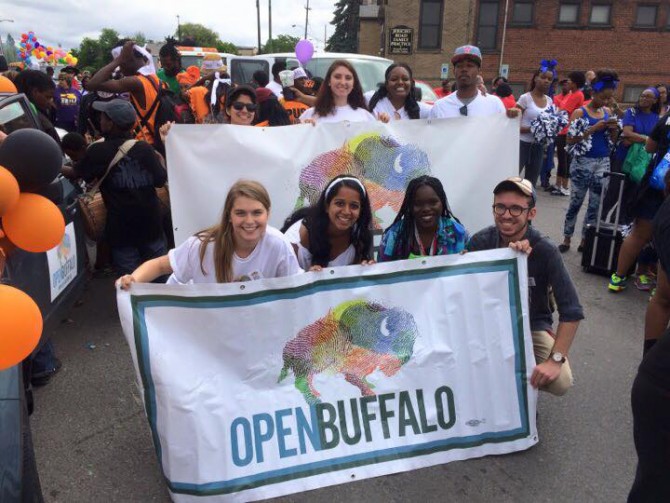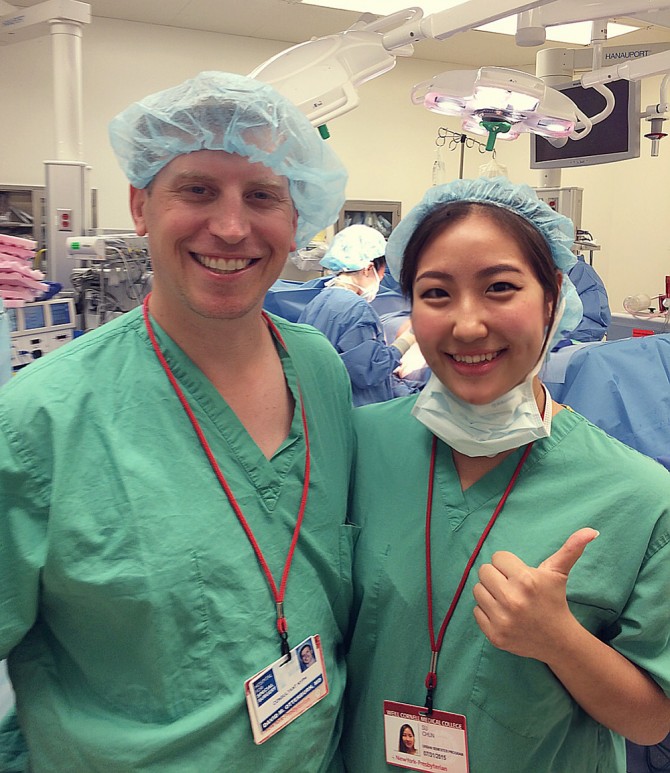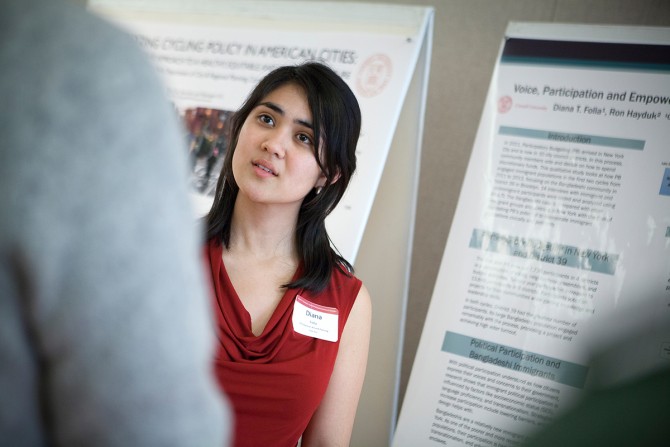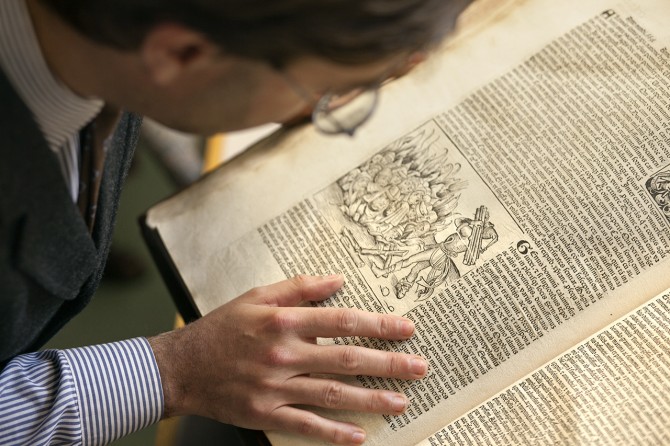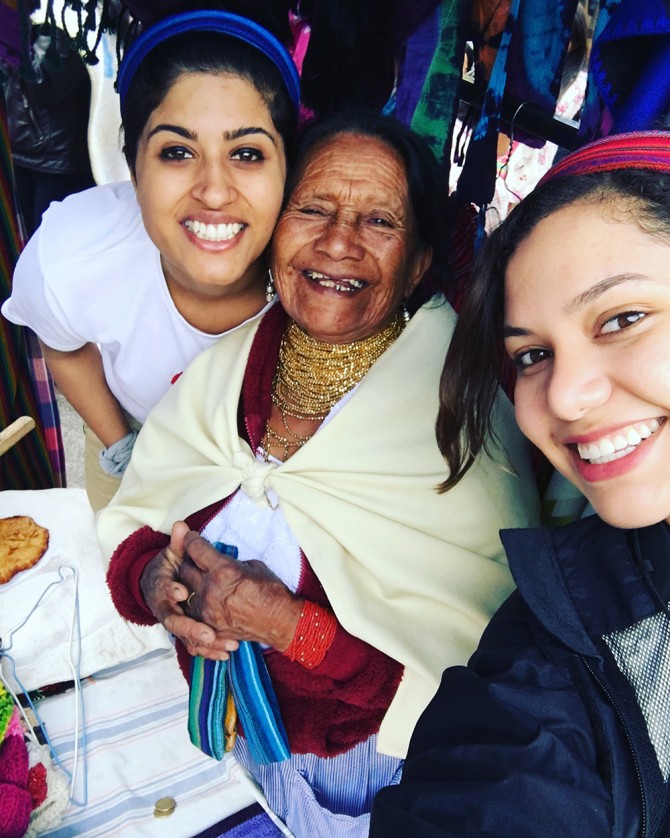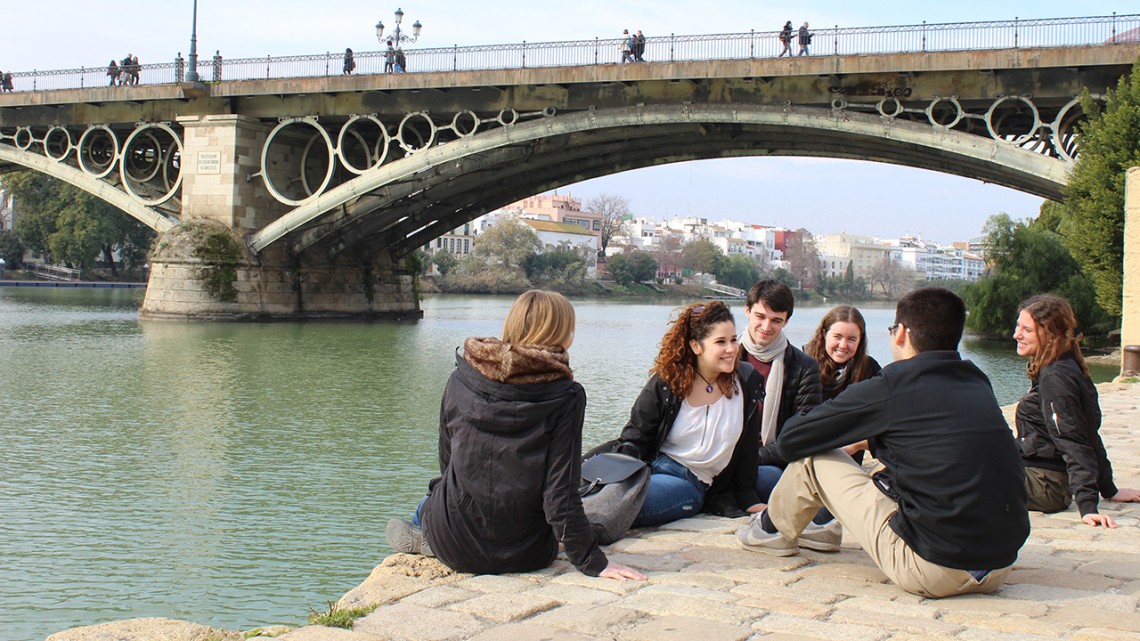
Students in the Cornell Global Program CASA-Sevilla take American-style and Spanish university courses, learn about Spanish culture and society by living with host families, work in community organizations, and take educational tours. CASA-Sevilla is one of thousands of co-curricular opportunities available to Cornell students.
New website helps students ‘experience’ Cornell
By Bill Steele Tom Fleischman
A Cornell education can be a lot more than going to classes. The university offers opportunities for international study, research, fellowships, career development and community-engaged classes – experiences that can change students’ lives and alter career paths.
But students don’t always know how to find these opportunities; one student described searching for them as a “Cornell treasure hunt.”
So program providers across campus have joined to form the Cornell Student Experience Initiative (CSEI) to connect students with thousands of opportunities beyond the classroom. A centerpiece of that effort is the newly launched website experience.cornell.edu that invites students to “find your opportunity.”
The groundbreaking initiative is led by Kevin Hallock, dean of the School of Industrial and Labor Relations, and Ryan Lombardi, vice president for student and campus life, in partnership with the Office of the Provost, the colleges and schools, and Cornell Information Technologies.
“Cornell’s distinctive collaborative spirit has always produced a wealth of opportunities for experiences outside the classroom for undergraduate, graduate and professional students,” said Hallock. “A goal of the initiative is to make it easier for all students to have equal access to finding these programs and to allow them to effortlessly explore all Cornell has to offer.”
CSEI enlisted the Custom Development Group at CIT to create the website, and more than 50 students took part in focus groups, testing and interviews to help refine its features.
“Throughout the design process, we wanted to ensure that the student perspective was represented in our testing,” said project intern Aimee Slupski ’19, an information science and psychology major who helped conduct research with students to improve the user experience. “I’m excited to see how students react to the website and how we can use their feedback to meet their needs in future iterations.”
The innovative site offers suggestions and allows users to compare programs and “favorite” them. Students can refine their search by categories such as curricular area, college or school, term and location. The site is now live with an initial collection of about 500 opportunities; by the start of classes in August 2018, the site is expected to feature hundreds more.
Opportunities are wide-ranging – from across campus to across the globe – and fall into one of six categories: Career Development; Community-Engaged Learning and Service; Fellowships & Funding; Global; Research; and Special Interest.
Students can drill into each opportunity directly from the site to see things like cost information, relevant resources, location, a summary of deadlines and links to sponsoring partners, said Shannon Osburn, assistant director of custom development at CIT. For programs that have an application, there is quick access via an apply button. Faculty advisers can use the tool to help their students find programs that are a fit for their interests and goals.
Project intern Ariel Gulchin ’19, an applied economics and management major who helped add content to the website, said she had been “overwhelmed” by all the opportunities available to Cornell students when she arrived. She said she’s already benefited from the site and is sure others will, too.
“Most of the opportunities I found on campus either happened by chance or through word of mouth,” she said. “This new website allows administrators to better communicate opportunities that the departments work hard to create for students.”
Each opportunity is managed by the program provider, and training is available to become a content contributor. To learn about training opportunities, log in to CULearn.
“The site will evolve,” CIT project director Rebecca Joffrey said. “It will take time to get a more complete representation of the many programs available to all the different groups of students. We want students to find things that are relevant to their interests, as well as experiences they might not have considered.”
New features will be added, such as dashboards for students that will allow them to track their application status, and dashboards for faculty and program administrators to manage applications.
“I am grateful to everyone who participated in this tremendous effort in support of our students,” said Lombardi. “A wonderful aspect of Cornell is the opportunity for students to shape their experience – not just in the classroom, but through co-curricular learning. With this new tool, they will spend less time searching and more time engaging.”
Media Contact
Get Cornell news delivered right to your inbox.
Subscribe